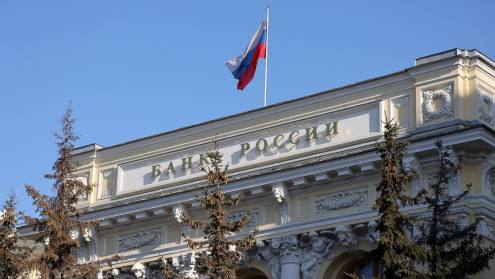Residential mortgage finance, like all forms of consumer lending in Ukraine, is a developing market, for a variety of reasons.
Under Soviet rule, few urban residents owned their homes, so there was little call for a mortgage market. Since 1993, the Ukrainian government has progressively privatised the residential sector and occupants of existing residences have been able to obtain title under the privatisation programme. Now about 85% of Ukrainian residences are privately owned.
Although the government has provided new housing at minimal or no cost to qualified individuals, the supply of these has been limited, and corruption often determined who would get these new dwellings. Hence, in the past, for most new constructions or sales of existing structures, buyers have had to pay in full at the time of purchase. There has also been a delay in the development of a mortgage system – but here, too, progress is being made.
Upbeat housing market
Now change is in the air for the Ukrainian housing market. Reflecting the recovery of the economy after the post-1991 depression, real estate prices have been rising dramatically. This is most marked in the capital, Kiev, where prices have risen by 35%-37% in the past six months and 250% in the past three years, often exceeding €1600 per square metre. The Crimean sea resort of Yalta is another hot spot, and most market analysts predict a continued rise in the prices of the country’s real estate.
The mortgage market is developing rapidly in line with this growth. The country has only had a modern mortgage law since January 2004. Currently, more than 50% of new housing sales are financed through mortgages. As of April 1, 2005, the total mortgage indebtedness was estimated at $685m. Two main factors, however, continue to inhibit the development of the mortgage market.
The first of these is a shortage of mortgage capital. Ukrainian banks finance most mortgage loans from their deposits, which are in short supply. Some banks have started issuing bonds, but mortgage-based securities are in their infancy. Similarly, a secondary market for mortgages is almost non-existent.
Legal framework
The second problem is the lack of an established legal framework. Since the main national mortgage law has only been in effect for less than two years, there has not been enough time to judge whether it is working effectively in default situations. However, it appears that if mortgage documents are properly drawn, one can expect that diligent creditors should be able to obtain effective relief, including extrajudicial relief, within a reasonable time after default.
Despite all these concerns, the Ukrainian mortgage market appears to be an attractive alternative for mortgage investors. The interest rates on currently written mortgages are high: 17%-23% on loans denominated in the local currency, and 12%-16% on dollar-denominated loans. Ukrainian mortgage debtors so far have been diligent in their payments and, according to market reports, delinquent mortgage loans usually do not exceed 0.5% of the total.
High down payments
In addition, current Ukrainian originations generally demand a 30% down payment, which evidences greater borrower commitment, and compares well with the 100% (or even 125%) financing deals so prevalent in today’s saturated US market.
In our experience, this lack of borrower commitment and the willingness of mortgage originators to extend 100% or more credit to subprime credit risks are major reasons for the upswing in defaults in the US. For example, we have seen near-100% loans – carrying interest rates lower than those charged to Ukrainian borrowers with 30% deposits – made to US borrowers that have multiple bankruptcies on their record.
Rather than sending “good money after bad”, therefore, sophisticated investors may want to take a good look at the emerging Ukrainian residential mortgage market.
Walter Conlon is head of the foreclosure department at law firm Metcalf, Conlon & Siering in Muscatine, Iowa. Dmytro Fedoruk (fedorukd@yahoo.com), an attorney from Kiev, Ukraine, is an intern in the foreclosure department.











